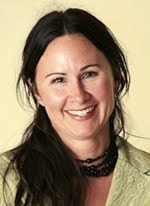I was just catching up on some newspapers and started reading an article that appeared in The Durango Herald on Thursday, the 18th titled: "Obama visit may heat up primary". I focused in and reread what was a confusing statement regarding primaries. Close to the end of the article a political scientist, Robert Lovey said , "He has noticed a national trend of party leaders trying to avoid a primary because they cost money and leave candidates scarred as they head into a general election".
Scarred? Really?
I would think it would be an obvious realization to those affiliated with a party that they really aren't involved in the candidate selection process if there isn't a primary. Who decides who the candidate should be?---like the article says, the Party leaders? Precinct captains? Only those who attend their caucus? It seems to me that primaries also provide an opportunity for the entire party membership to know each candidate better and how they may differ on the issues that are important to them.
While I'm not one to "toot the party horn" right now, I just think that primaries are to be encouraged---and making them open primaries would be especially nice, not to mention conceptually democratic. We should be spreading the candidate vetting net much wider than just a few people. I want the smartest and most qualified people running for office--not just the one's that a few party leaders encourage or discourage to run.
The other part of the equation is the $. Does this mean money to hold the election itself or a loss of money going to the party candidate if they have to campaign for both a primary and a general election? Granted, every candidate is taught to shudder at the thought of that last reasoning. But would it be worth the extra cost to the tax payers to pay for a primary election in order to better know their next leader?
I remember how hard it was to find candidates to run for office when I served on the executive committee for our county Democratic party and was party chair. There were very few people who wanted the job.
Our government needs smart, innovative problem solvers--- and especially communicative one's. To me it stands to reason that the more we have a diversity of those involved in the vetting process, the better those candidates will be---and more people will know them.
Saturday, February 20, 2010
Subscribe to:
Post Comments (Atom)

No comments:
Post a Comment